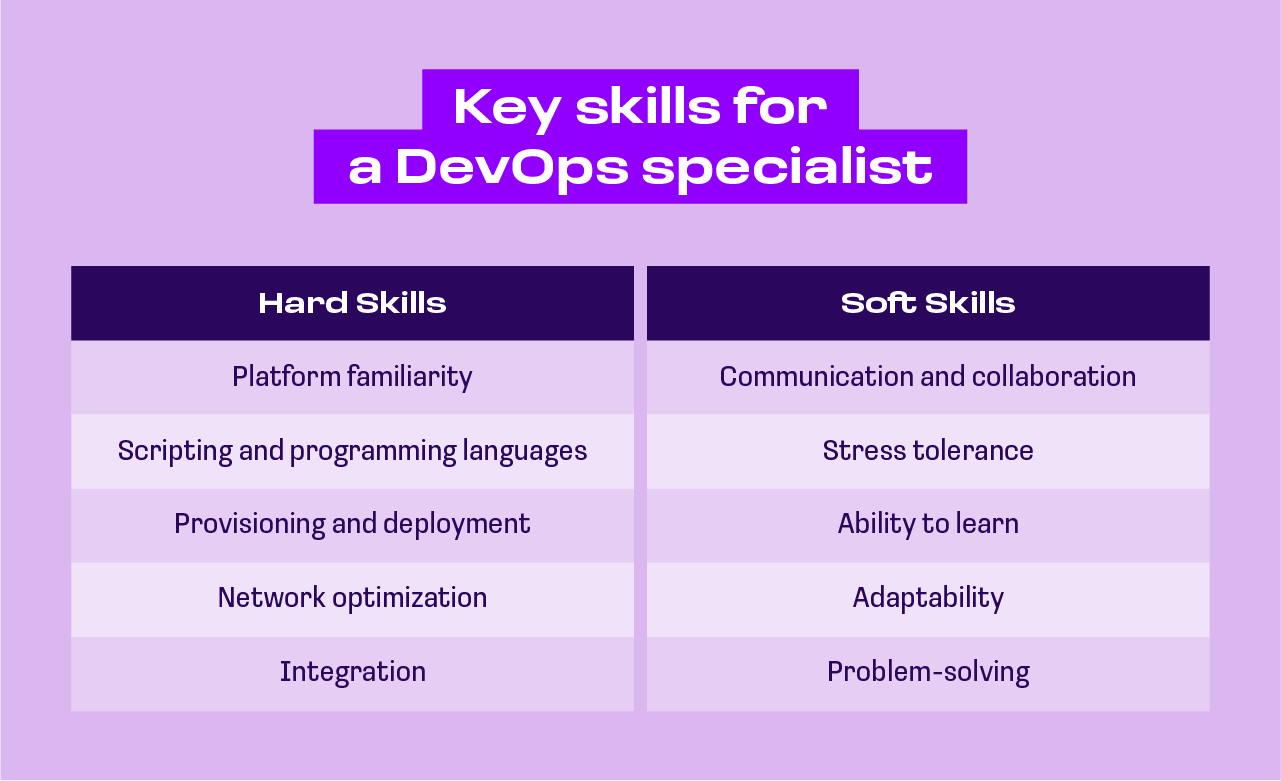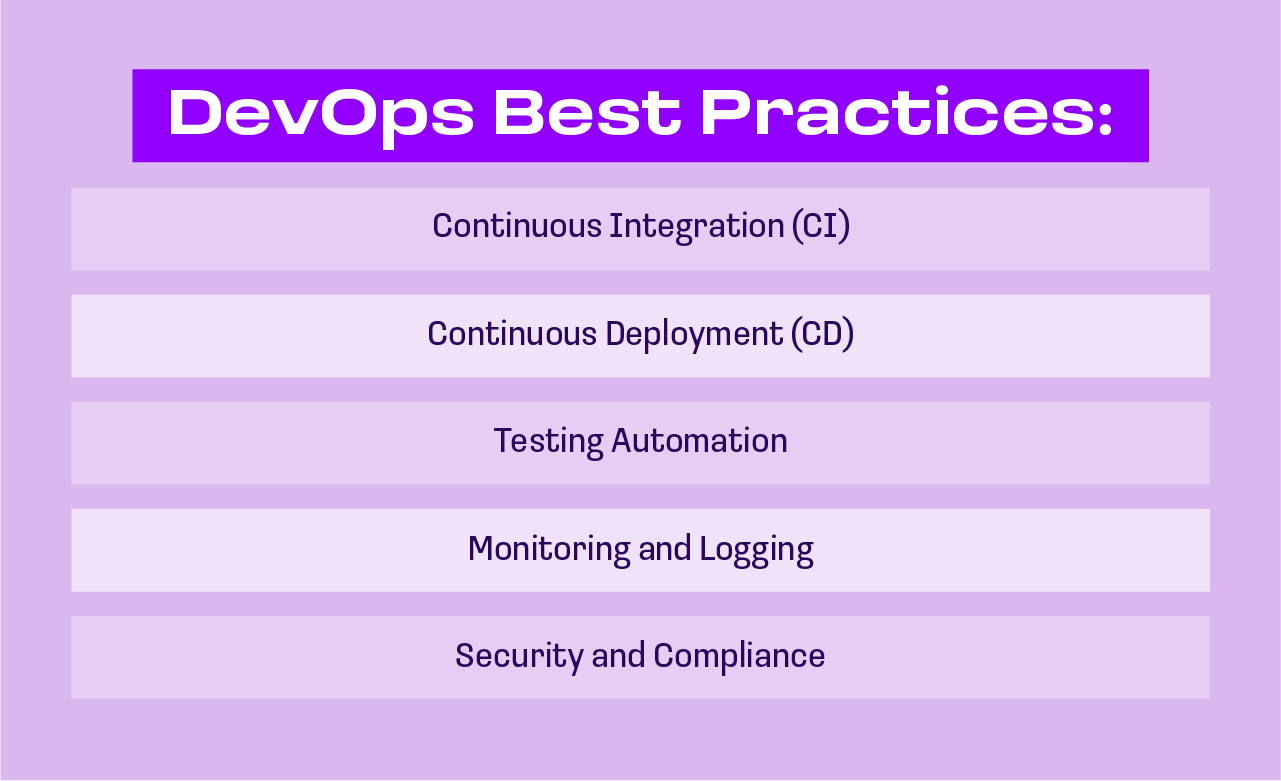How to Get Into DevOps: What You Need to Know and Where to Start
The author of this article is tech expert Pieter Murphy.

Who is a DevOps Engineer?
Before we start on how to become a DevOps specialist, it is worth defining what the term means. Most of the time, it refers to any DevOps practitioner, whether or not they are an engineer in the traditional sense.
Nevertheless, to simplify things with a more general description, a DevOps engineer is a professional in IT who works with system operators and admins, software developers, IT operations staff, and others to facilitate and/or oversee code deployments.
The training teaches you to use the appropriate tools and write programs to automate infrastructure provisioning, monitoring, testing, and application deployment. You also learn to set up continuous delivery and integration pipelines that enable developers to check in code changes easily.
In this article, we look at the best way to get into a DevOps career and inspire you as you get started. Those learning how to transition to DevOps will find this guide useful too.
Responsibilities of a DevOps Engineer
To start a career in DevOps, you must know how to manage and implement the tools, workflows, processes, and infrastructure required to support various DevOps initiatives.
You could be assigned any of the following responsibilities depending on your role. Keep in mind that these are just some of the things you may be assigned to do to become a good DevOps engineer:
- automate processes
- deployment
- automation implementation
- application of agile development
- scripting and coding
- monitoring and testing
- streamlining processes
- improving process stability
- setting up tools and required infrastructure
- managing infrastructure
- configuration
- programming
- version control
- microservices architecture.
By combining operations know-how with development expertise, you can start a DevOps career to provide organizations with the ability to deliver high-quality software at scale while maintaining efficiency and stability.
Do DevOps Engineers Have a Future?
Many firms and organizations are integrating the DevOps skillset and best practices. Therefore, more and more companies are instituting similar or even better practices to stay competitive. The resulting ratcheting impact could propel demand forward indefinitely.
Corporations' interest in keeping up with the digital transformation means when you get a job in DevOps, you open your world up to plenty of opportunities.
When you get into DevOps, here’s what you can look forward to:
The rising demand for DevOps engineers
Companies implementing DevOps tools in their processes enjoy technical benefits such as continuous and integrated software delivery, higher stability in operating environments, faster delivery of software features, and more value addition time.
For these and more reasons, businesses all over the globe are rapidly switching to DevOps-related practices and technologies. This has led to a surge in the demand for experts.
According to recent data from Markets and Markets, the field is set to grow by 25% annually between 2024 and 2032, while the 2023 Dice Tech Salary report says that the Engineer role is the most in-demand.
DevOps engineering as a career path promises steady growth
If you’re set to begin your career, you can start as a release manager, advance to a test engineer, become a cloud DevOps engineer, and finally, a DevOps architect. Tech giants like Facebook, Barclays, and Accenture always seek skilled DevOps engineers and professionals.
What Should DevOps Know: Key Knowledge and Skills
Here are some very useful and essential tools you need to learn to use before you get a job as a DevOps engineer:
- Jenkins: This automation server has plugins for constructing CI/CD pipelines.
- Docker: This is a software containerization platform.
- Kubernetes: This is used for container orchestration.
- GitHub and Git: This is for source code management – Version Control System.
- Selenium: It is used for automation testing.
- Chef: It is a tool for configuration deployment and management.
- Puppet: This tool can also be employed for configuration management and deployment.
- Nagios: This is used for continuous monitoring.
The list of the skills required to become a DevOps expert is long, and you will need even more to master the role. While specific requisite skills may vary between organizations, I’ve made the following list of the core skills you must pick up when learning to become a DevOps engineer.

1. Platform familiarity
One of the main requirements to become a DevOps engineer is deep expertise in administering the stack an organization plans to use or currently uses. The principal stacks are Linux server distributions, Microsoft Windows Server, and a cloud structure.
For example, a strong understanding of VM platforms, such as OpenVZ, Docker, and Cloud Foundry, is vital with Linux. Similarly, combining hybrid or public cloud infrastructure requires a working knowledge of these cloud services, cost structure, and management options.
2. Scripting and programming languages
Low-level coding is usually a task for the development teams. However, engineers still need to develop scripts, understand the source code, and tackle integrations, like getting the code version to communicate with the MySQL database to run deployments at the end of the operation.
You will learn Python, PHP, Ruby, Perl, C++, Java, and other languages. A background in continuous integration tools like Apache Maven, Jenkins, and Apache Ant will give you an added advantage in your career.
3. Provisioning and deployment
Your DevOps career path will see you acquire IT infrastructure and hardware skills, from operating systems and networks to servers and storage. Since these engineers know the whole IT stack, they can guide the deployment and provisioning of each release in the public cloud or the local data centre.
Becoming a DevOps specialist requires this knowledge to maintain and create highly available and reliable services like resilient cloud infrastructures.
4. Network optimization
Getting into DevOps requires extensive know-how of network architectures and interfaces and an understanding of workload latency and bandwidth requirements. Knowledge of networks also includes a strong emphasis on security that involves managing and deploying VPNs and container-centric tasks in software-defined networking.
5. Integration
Although platforms like Redis, Microsoft Exchange, and database systems are usually part of the business stack, engineers still need to know how to use them.
An example would be when a business tethers its software product to an SQL back end. In this case, the engineer would need skills to make complex SQL queries and set up the database.
Soft Skills for a DevOps Engineer
Since DevOps combines two departments – development and operations, engineers usually have to wear many hats.
They may be required to code and, at the same time, still manage core operational responsibilities, among many other roles. The steps to become a DevOps engineer aren’t complete until you develop soft skills.
They include:
Communication
DevOps engineers work at the intersection of two domains, necessitating clear and concise communication to bridge the gap. Effective communication skills enable them to articulate complex technical concepts to non-technical stakeholders, ensuring everyone is on the same page.
Stress tolerance
DevOps engineers often find themselves working in high-stakes situations. Stress tolerance enables them to remain calm under pressure, make informed decisions, and keep the development pipeline flowing perfectly.
Ability to learn
This soft skill, in addition to enhancing the professional and personal development of the engineer, also contributes to the team's overall success.
Collaboration
Strong collaboration skills enable an engineer to foster a culture of accountability and shared responsibility.
Adaptability
The field can present dynamic challenges due to technological advancements. An adaptable engineer contributes to a resilient and flexible team that can navigate all the uncertainties of the tech industry.
Problem-solving
An engineer with problem-solving skills enhances the team’s efficiency by optimizing system performance and minimizing downtime.
DevOps Best Practices

DevOps experts adhere to several essential best practices. They all revolve around supporting the combined environment of development and operations. These are the best practices you will learn to become a DevOps engineer:
Continuous Integration (CI)
Any job you will tackle as an engineer will revolve around maintaining and setting up Continuous Integration (CI) pipelines. You will achieve this using tools like Travis CI, Jenkins, and CircleCI.
These CI pipelines will, in turn, automatically test, build, and incorporate code changes into a common shared code repository numerous times daily, ensuring code change integration and quality and mitigating integration issues.
Continuous Deployment (CD)
Continuous Deployment automates deploying code changes in production environments. engineers are tasked with configuring CD pipelines to release software to production after the Continuous Integration process is complete and successful.
The most popular CD tools include containerization software such as Docker and Kubernetes.
Testing Automation
DevOps, in keeping with the speedy spirit of things, has to facilitate the development, maintenance, and configuration of automated testing tools that perform unit, end-to-end, and integration tests. These tests check code changes to ensure they do not introduce defects, bugs, or regressions into the process.
Monitoring and Logging
Engineers provide feedback from the production team to reduce the time to detect (TTD) errors and time to minimize (TTM) errors. They must log and monitor systems and software to better understand their performance and the infrastructure's and software's health, using tools like Splunk, Grafana, and ELK Stack.
Security and Compliance
As an engineer, one of your responsibilities will revolve around compliance and security. You will collaborate with security teams to implement best practices and security measures throughout the software build, development, and deployment process. This workflow integrates regulatory requirements, security policies, and vulnerability assessments into the CI/CD pipeline.
How to Become a DevOps Engineer from Scratch: 6 Essential Steps for Beginners
Your guide to becoming a DevOps engineer is further simplified when you know the essential milestones to hit. Let’s discuss them briefly:
1. Learn programming
Learning how to become a DevOps engineer requires proficiency in coding. You can look for either free or paid coding boot camps or online coding courses where you will learn the basics of programming. We recommend starting with coding languages like Python, JavaScript, and C++.
2. Understand operating systems
You must be familiar with common OSes like macOS, Windows, Linux, iOS, and Android.
3. Earn a bachelor's degree
Even though employers value engineers' skills more than their education, most still seek degree holders. A degree legitimizes your application, adds to your credibility before entering the door, and makes your DevOps roadmap much easier to navigate.
4. Get certified
Earning one or more certifications will help demonstrate your skills to potential employers. You can take an AWS, Google Cloud, or Azure DevOps path to specialize in one of the major tech companies’ technologies to give yourself more room in your niche.
5. Get hands-on experience in DevOps Engineering
One way to get some experience is by working with developers and seeing what they do. This will prepare you to become a DevOps developer in other roles. Other ways to get into DevOps are internships in development, operations, or an agile environment.
6. Start applying for jobs
After ticking off the above steps, you can showcase your expertise. Create a solid portfolio that shows your technical skills, degrees, and certificates when applying for engineering jobs.
Common Challenges and Solutions
As we’ve already established, engineers play an essential role in software development. However, the work environment and requirements to be a DevOps engineer present several challenges.
Here are some of them and how you can navigate them effectively.
Managing Complexity
DevOps environments, especially in large-scale companies, are incredibly complex. Engineers deal with a myriad of technologies, tools, and platforms. Navigating these complexities while ensuring system stability can prove daunting.
Solution: You can arm yourself with automated deployment pipelines, robust documentation, and an ample understanding of the organization’s technology stack.
Continuous Delivery and Continuous Integration (CI/CD)
We have already discussed why it is essential to implement successful CD/CI pipelines. However, maintaining and setting them up can be challenging, especially when diverse application dependencies and architectures are involved.
Solution: As an engineer, you should leverage automation tools and create standardized CD/CI templates to streamline the process.
Security Concerns
Fast-paced environments can make integrating security practices into the development process challenging. This is more acutely felt in the early days of learning how to become a DevOps specialist.
Solution: You can perform scheduled vulnerability assessments, incorporate security tools, and educate the development teams about crucial steps like secure coding practices.
Technology and Tooling Stack
Choosing the right tools and staying up to date in the ever-evolving landscape of DevOps can be overwhelming.
Solution: You should evaluate new tools cautiously and invest time in continuous learning.
Cultural Resistance
Organizations often undergo a cultural shift when implementing DevOps. Resisting this change can hinder progress.
Solution: You can foster collaboration, advocate for a cultural shift, and even communicate the upsides of implementation to all the stakeholders.
Observability and Monitoring
It is difficult to ensure the performance and reliability of applications in production.
Solution: You should implement efficient logging practices, utilize monitoring tools, and use automated alerting to respond to production-related issues quickly.
Resource Scalability
Engineers must ensure that applications can manage sudden traffic surges without downtime.
Solution: You can implement load balancing, auto-scaling, and cloud-native solutions to handle resource scaling effectively.
Certifications and Education
The specific qualifications and prerequisites required to be an engineer are not static and may vary from one organization to another. Your learning-path to become a DevOps engineer from scratch starts with getting a certain educational background or certifications.
You can start by obtaining academic degrees in undergraduate education by pursuing recommended courses like software design, computer science, engineering, programming, information technology, or related fields.
If you already have a bachelor’s degree in this field, you can enroll in a postgraduate degree like a master's program.
Regarding certifications, what do you need to become a DevOps engineer? Start by checking out the following options and what they offer.
- AWS Certified DevOps Engineer: Professional
- Azure Certified: DevOps Engineer Expert
- Docker Certified Associate (DCA)
- Certified Kubernetes Administrator (KCA)
- Google Cloud Certified: Professional DevOps Engineer
- HashiCorp Certifies: Terraform Associate.
Tips for Preparing for DevOps Interviews
DevOps engineering is a fulfilling and rewarding job. However, to ace the interview, you require deep preparation, the ability to demonstrate technical and interpersonal skills and a deep understanding of the principles.
Here are a few tips that will help you prepare and get a DevOps job:
- Understand the practices and principles: Before anything else, you must thoroughly understand the core practices and principles of the DevOps philosophy. Familiarize yourself with CI/CD, IAC, AWS, Azure, and GCP concepts.
- Master relevant technologies and tools: It is essential to be familiar with various tools and technologies because you’ll be expected to work with them as an engineer.
- Brush up on scripting and programming languages: As a DevOps engineer, you must be proficient in at least one language to configure and automate tasks. In addition to popular programming languages, familiarity with others like Java and Go can also be advantageous.
- Study system networking and design concepts: An engineer must have a solid understanding of networking and design concepts. During the interviews, prepare to discuss topics like horizontal scaling, fault tolerance, load balancing, and network protocols.
- Prepare for behavioral questions: On top of technical questions, also expect behavioral questions. Use the STAR (Situation, Task, Action, and Result) method to provide concrete examples and structure your answers.
- Review sample interview questions: Go through common interview questions. They will help you to refine and practice your responses. For instance, if you see a posting for an AWS DevOps engineer job description, find out what questions will likely be asked in that context and prepare to wow the interviewer.
Tips for Beginning DevOps Engineers
What do you need, to be a DevOps engineer when you’re just starting out? Here are a few general tips to help you along the way:
- Automate as much as possible.
- Document everything.
- Master at least one programming language.
- Learn different OSes.
- Practice using GitOps and Git
- Research various positions.
- Rewrite your CV/resume.
- Be a good communicator.
- Be open to change but don’t just change for change’s sake.
- Take initiative.
Conclusion
We have discussed the basics of becoming an engineer, and although it requires passion and persistence, it’s not rocket science. All you need is dedication and drive to follow this career path.
So, once more, what do you need to be a DevOps engineer?
With the proper skillset and the right job search strategy, you can land your DevOps engineering dream job quickly!

.png)
